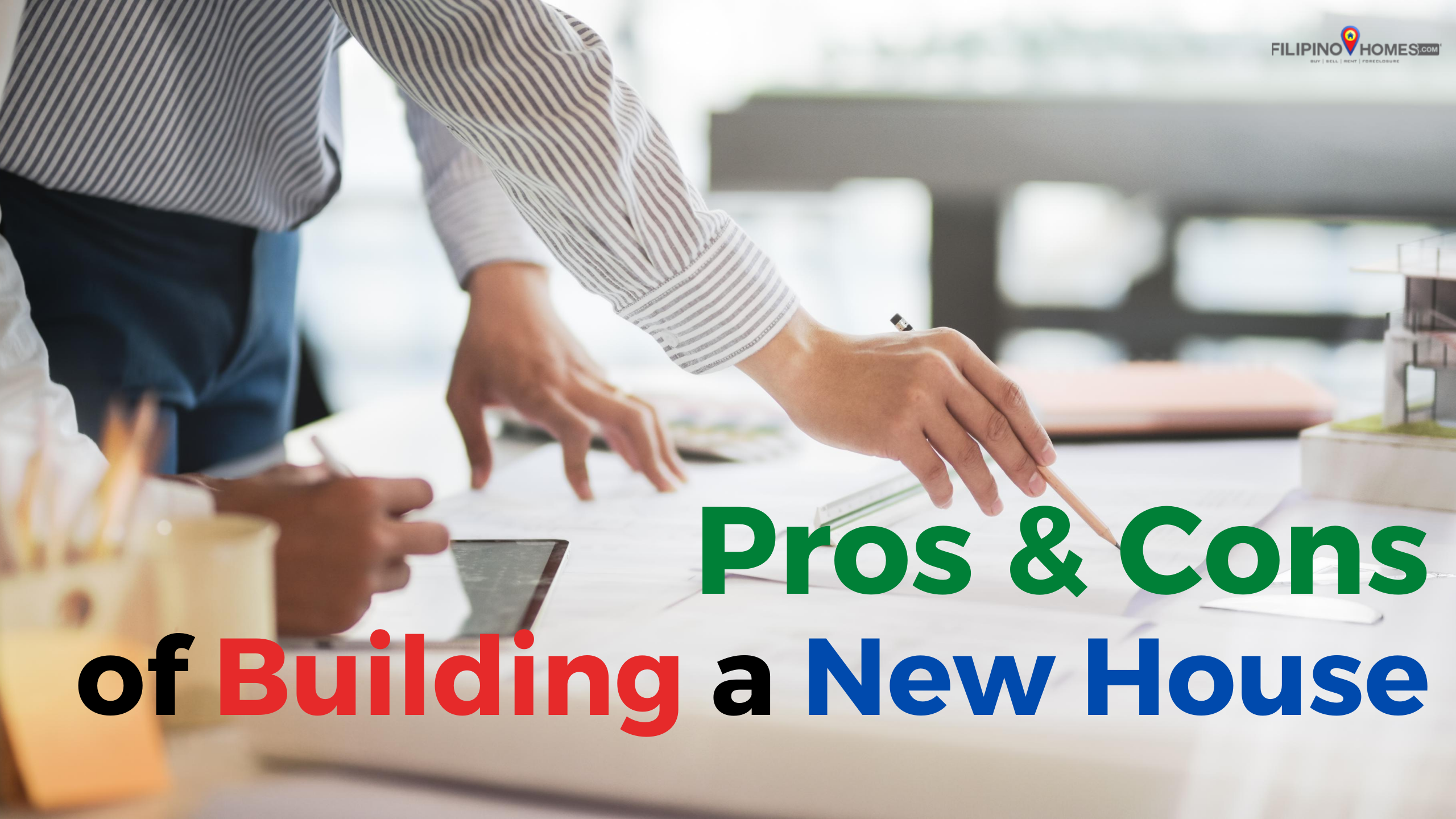Being in quarantine has had us thinking of building our dream houses, where we can comfortably stay in over an extended period of time — a quarantine-friendly home, so to speak. While it does sound like a dream to build your own house, but there are some very real-world disadvantages. In this blog post, we’ll tackle the pros and cons of embarking on a construction project.
Pros:
1. Customization (to an extent)

The main advantage of building your own house is you get to build the home as you want and choose everything from the floor plan to the materials and finishing you like. You can literally have anything your budget, physics, and permits will allow.
2. Quality Control

Being the primary decision maker for the house you are building allows you to be hands-on to everything, from planning to building to furnishing. You can make sure everything you choose is up to your standard.
3. No environmental or health worries
New homes are built to current building codes. They are often more energy efficient, built with sustainability in mind and with environmentally friendly materials. You also have the option to incorporate up-to-date technology, including solar panels or has modern insulation, in building your new home that will help you reduce energy costs down the line.
4. Less likelihood of dealing with maintenance issues

Moving into a new home means you’re less likely to deal with big-ticket maintenance issues like leaky roofs or problematic walls and floors.
5. Investment Potential

In terms of investment potential, building your home allows you the flexibility to future-proof your home. You can build a home with sustainability in mind that can potentially appraise for more than you spent building it. Doing this may attract a higher quality of tenant (or buyer if you decide to sell later), who will pay more for the luxury touches in newer homes.
Cons:
1. A drawn-out process

Here in the Philippines, it would typically take an average four of six months to finish a house construction project, depending on the size and design of the house. This time-frame may often need to be stretched out even more if there are any hold ups, mistakes, or clashing schedules with hired workers. You would also need about 6 weeks for blueprints and building permits. This means you won’t be able to move in right away and you might need to be prepared to cover the cost of renting until you can move into your newly built place.
2. Location
Location can also prove to be an issue with new builds. Most residential lots in the market are often on the outskirts of cities and not in central locations. This could mean longer commutes for your place of work, supermarkets, schools, etc.
3. Being your own project manager

Building your own house and being the key decision maker on the direction of the project from planning to financing can potentially be stressful. You would need to answer to the questions of your contractors, suppliers, etc and may have to deal with the unexpected change in scopes or change in materials. Some people may have the skills for it, some unfortunately don’t. Ask architects, designers, or contractors who will manage the project if you are not able to. This may mean additional expense, but could help you keep your sanity.
4. Unpredictable weather
Here in the Philippines, we often have bad weather that can put delays on work getting started or completed. Be sure to ask your contractors what are the contingencies that they have in place in case it gets rainy for an extended period of time.
5. Unexpected out-of-pocket expenses

Unplanned expenses have a funny way of sneaking up on you when tackling new constructions. It may be very tempting to purchase better materials and go overboard in post-move costs like landscaping and furnishing. Play it safe by budgeting for only those you can cover with cash.





